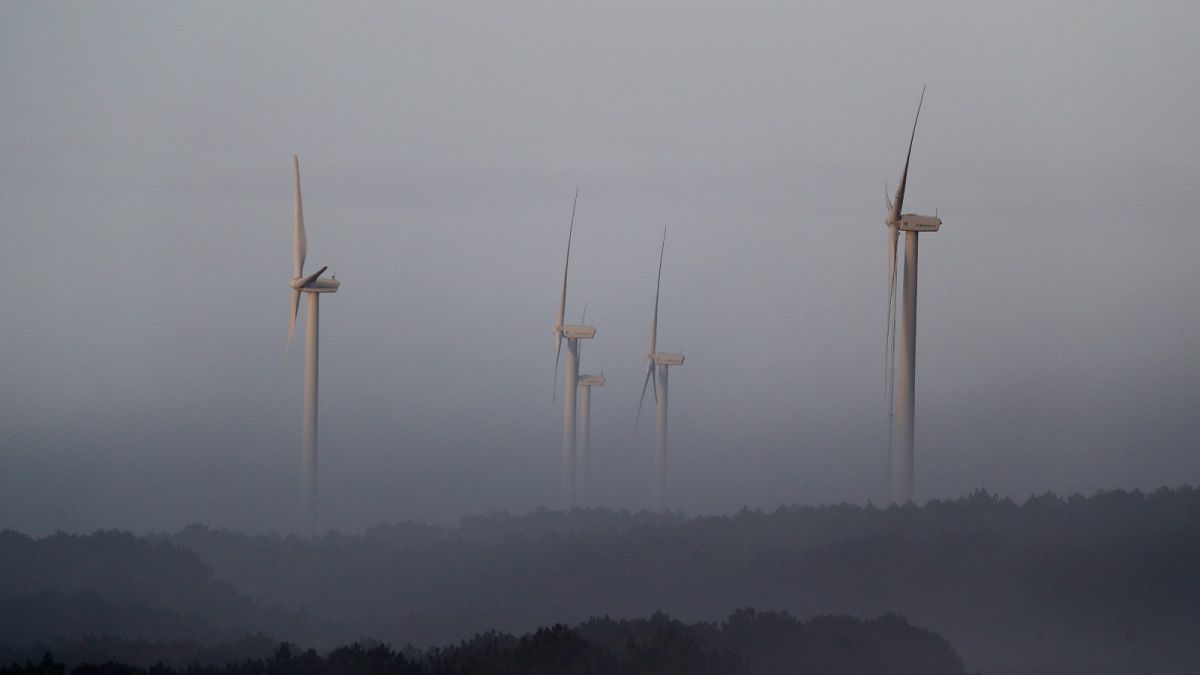For Spain and Portugal, the EU plan to reduce its dependency on Russian fossil fuels may be a historical opportunity.
For Spain and Portugal, the EU plan to reduce its dependency on Russian fossil fuels may be a historical opportunity.
The Iberian Peninsula is a renewable energy leader in terms of solar, hydraulic and wind power. But their level of interconnection with the rest of Europe is low.
“Spain and Portugal have been asking for a long time for more and better interconnection. Especially in electricity with the rest of Europe," said Pierre Tardieu, Chief Policy Officer of Wind Europe, an association for wind energy in Europe.
"That is something that to a degree has been frustrating them because they haven’t had the response they were hoping for".
The challenge of crossing the French border
To reach European markets, they need infrastructure passing through France.
At a 2015 summit, Spain, Portugal and France agreed to build infrastructure to better integrate the Iberian Peninsula into the Energy Union.
In 2018, the three countries agreed to reach a level of interconnection capacity of 15%, with several projects.
The European Commission committed 578 million euros in funding for an undersea power cable between Spain and France across the Biscay Golf.
“Portugal and Spain are a powerhouse when it comes to electricity production. It’s mostly electrification that is going to deliver decarbonisation," said Tardieu.
"The better interconnected European markets are, the more resilient the energy system will be".
Spain disappointed with France’s cooperation
Initially set for 2025, the project was delayed and is now scheduled for 2027.
The Spanish authorities have not hidden their disappointment about working together with France.
“We have a lot of affinity and synergies with France (...) but it is very hard to make progress with them in terms of energy interconnections,” said Spain's environment minister Teresa Ribera in March at a media event.
Portugal is also putting pressure on France. The president of the Portuguese Association of Renewable Energy told Euronews that the current interconnections projects are not enough to reach the 15% target.
“When all the current projects are completed, the interconnection between Spain and France should reach the target of 8 GW, which falls short of the 15% goal," the Portuguese Association of Renewable Energy president Pedro Amaral Jorge told Euronews.
"The expansion of energy transport and transfer capacity of the interconnections between the Iberian Peninsula and France needs to be accelerated rapidly".
Brussels acknowledges the need to invest in Europe’s power grid
The EU's latest plans to reduce dependence on Russian fossil fuels call for an acceleration in efforts to link France and Spain. Brussels says wind and solar should play a bigger role in Europe's energy transition.
A strategy in which Spain and Portugal claim to be ahead. Portugal announced a new target to reach 80% of electricity consumption from renewables in 2026.
Spain has set a Roadmap to become the powerhouse of floating wind turbines.
The EU plan to make Europe independent from Russian energy imports acknowledges the need for EUR 29 billion of additional investments in Europe’s power grid.
“It means that the electricity grid will be the backbone of the energy system. When we have a well interconnected Europe with the Iberian Peninsula better connected to France and with southeast Europe better connected with the rest of Europe, and the completion of the synchronization of the Baltics, Europeans will be able to tap into the formidable potential of offshore wind in the north sea, onshore wind in the Iberian Peninsula, solar in southeast Europe,” said Tardieu.
With a new head of government in France, politically it could be a good moment to move forward on the energy plan.
The new prime minister, Elisabeth Borne, will be directly responsible for Energy and Climate policies.
Euronews reached out to the French government for comment but did not receive a response at the time of publication.
